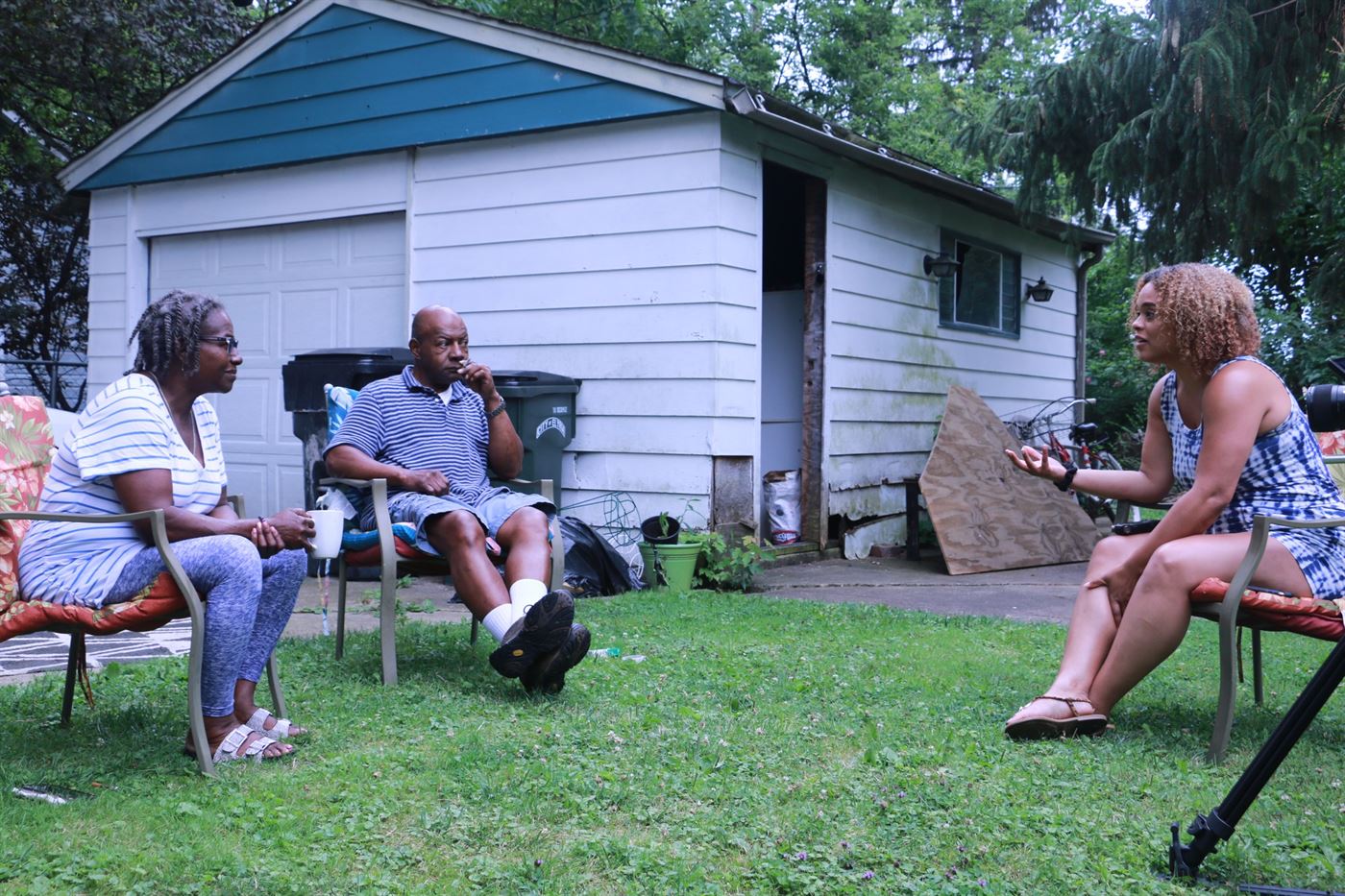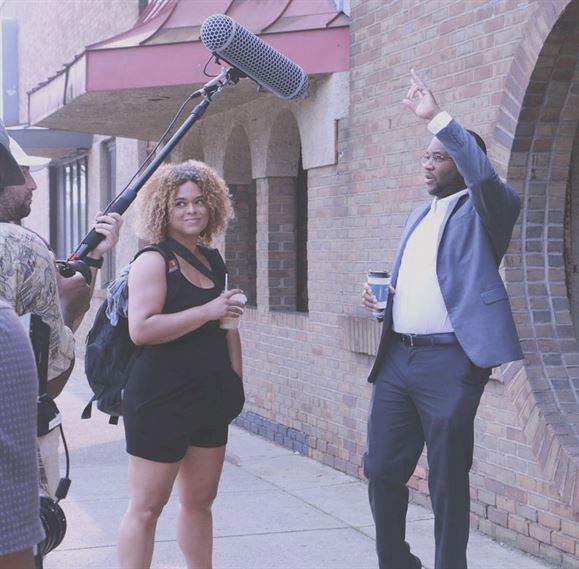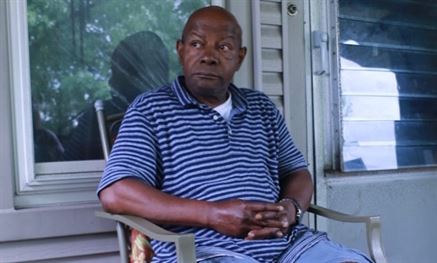Montclair State University professor and founder of “MEDIA MAKE CHANGE,” Dr. Tara Conley is producing her first feature documentary, “DRY BONES,” with the help of her students.
The documentary sheds light on the story of Ike Maxwell, a Black high school football star in Elyria, Ohio, who broke multiple records and was on his way to making it big in the 1970s. But, after his brother, Daryl Maxwell, was shot and killed by a white police officer, the tailback’s career was derailed. Fellow Black Elyrians and other allies protested his brother’s death, which according to Conley, was framed by the news media as a “race riot.”
Since then, Ike Maxwell faced heavy hardships and trauma in the years that followed, which resulted in mental health issues. The film offers a look into his legacy and how the community of Elyria continues to support him today.
Although the start of this story took place decades ago, it mirrors the many accounts of police brutality and racial injustices that have plagued the nation in recent times. The mission statement for the film states “the project seeks to spark national conversations about what racial justice can look like across communities in the United States.”
The town of Elyria has had a long history of racial enmity, according to Conley.
“This story is as much about [Ike Maxwell] as it is about my hometown and the racial tension there,” Conley said. “It’s also about a small town trying to get through some racial reckoning and healing.”
When it comes to contemporary media focused on life in the mid-western United States, some argue the stories of Black people, as well as indigenous people and people of color, are severely underrepresented. Narrative inequality, a term coined by “Voices from the Rust Belt” editor Anne Trubek, is the concept in which some stories are repeatedly told while others are passed over and ignored.
One of Conley’s goals with her media making is to disrupt the forces that keep marginalized stories in the dark.
“When it comes to Hollywood, when it comes to new media and press, there is a tendency to uplift certain stories and erase other ones,” Conley said. “Narrative inequality is just this notion that there’s other stories that are put ahead of other stories, and I want to try to intervene in that space through documentary film.”
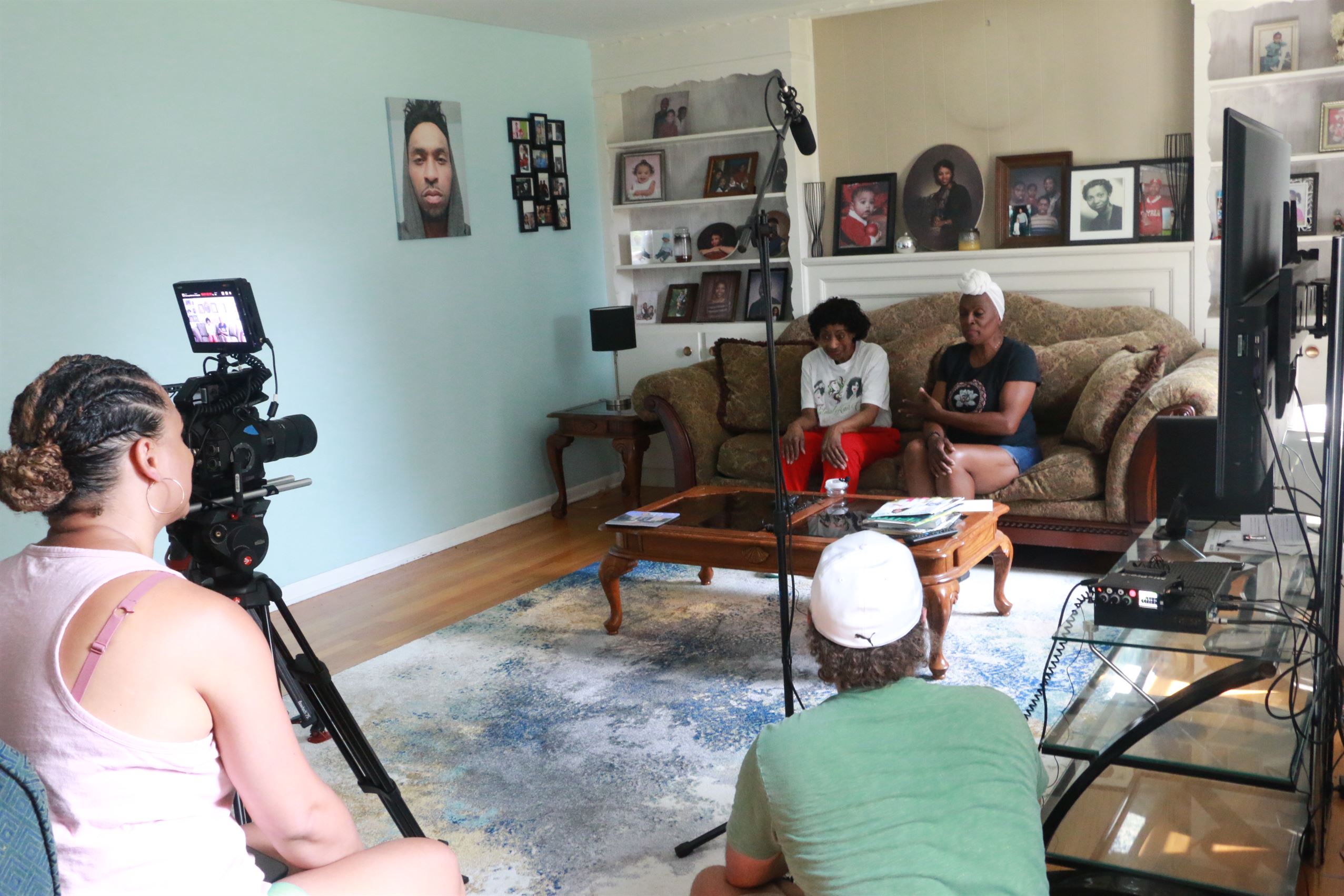
Behind the scenes of an interview with Ohio natives Brenda Conley and Carolyn Arnold.
Photo courtesy of Tara Conley
Conley offered extra credit to her transmedia students who were interested in assisting with post-production, but extra points on their final grade are not the only thing they will be walking away with.
Chelsey Johnstone, a senior journalism major, works as an archivist for “DRY BONES.” She has varied experience with journalism and multimedia content and also contributes to the social media presence of the film.
Over the last year, Johnstone has done extensive archival research, a key element to paint the picture of the story that is being told. It has consisted of gathering newspaper clippings and photos, reading articles, both hard news and opinion, of the night of Daryl Maxwell’s death, as well as the aftermath and rise in racial tensions that followed.
While helping Conley produce the film, Johnstone’s appreciation for storytelling has fruitfully grown.
“Sometimes as a journalist, we get so caught up in writing a story … and then once it’s finished, it’s done with,” Johnstone said. “What this experience has taught me, too, is that your stories impact many people whether it’s the people you’re writing about or [how] what you’re writing about impacts others. I really learned to take away that this isn’t just a story for the world to be hearing, but that Maxwell and his family deserve to have their story told, and I think it’s important that the story gets heard.”
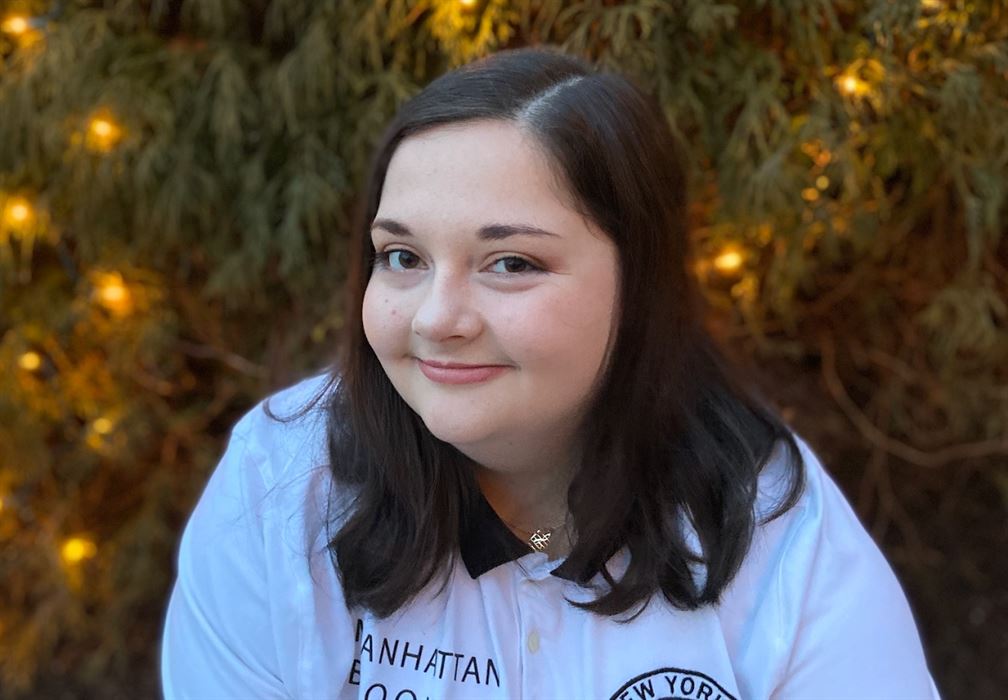
Chelsey Johnstone, a senior journalism major, works as an archivist for “DRY BONES.”
Photo courtesy of Chelsey Johnstone
Grace Pula, a junior film and English major, works as the film’s social media manager. Pula has done research surrounding the film’s story in an effort to connect the film to its online presence. Following that, different graphics are created and used for promotional posts on the “DRY BONES” Instagram, Twitter and Facebook.
The project has helped Pula acknowledge the potential small stories have and the impact they hold.
“Some things I’ve learned on the project is that everyone has a smaller story they can tell,” Pula said. “Odds are that each smaller story extends to a larger picture on our culture.”
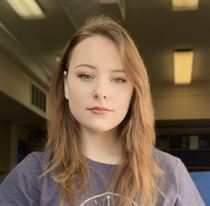
Grace Pula, a junior film and English major, works as the film’s social media manager.
Photo courtesy of Grace Pula
The presence of Montclair State’s finest are not only a part of the post-production team, they are also a part of the film’s earlier stages. Alumni accompanied Conley in Ohio to help film.
Sean Arnold, a 2021 filmmaking graduate, worked on the film as a producer and production manager and has collaborated with Conley for over a year. Eddie Swanson, a 2019 communication studies graduate, is the film’s director of photography. Michael Gurrieri, a 2021 filmmaking graduate, worked as the film’s sound mixer and drone pilot, filming the aerial shots.
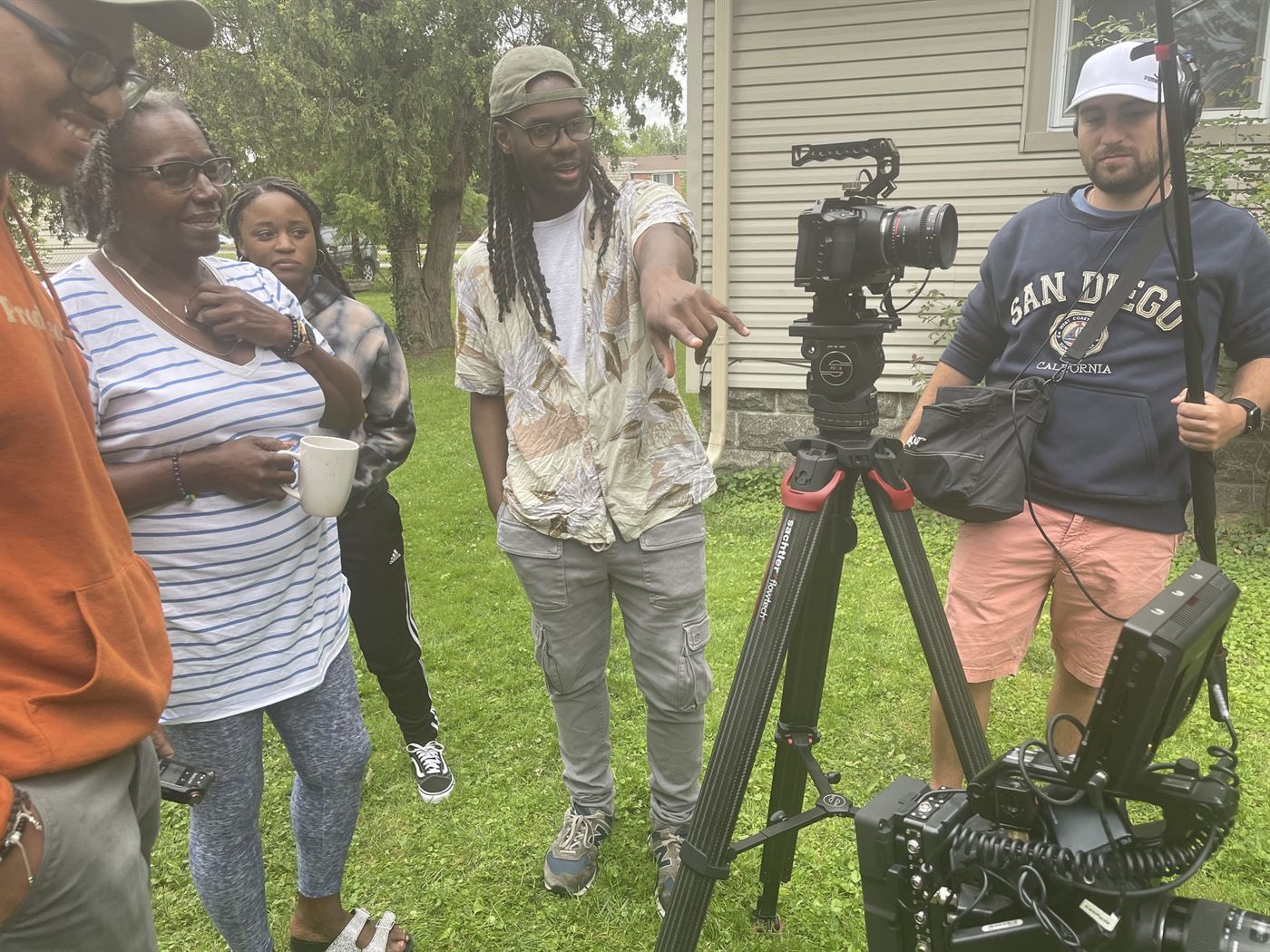
(Left to right): Montclair State alumni Sean Arnold, Eddie Swanson and Michael Guerrieri accompanied Conley in Ohio to help film.
Photo courtesy of Tara Conley
“DRY BONES” is currently in its post-production stages and further research is being done for the film. Conley plans to return to Elyria in the summer to collect more information and create additional footage that may be needed to complete the film.
Her major focus now is fundraising for the production. To recoup some of the costs Conley funded herself as well as cover additional costs, a campaign through Seed and Spark is collecting donations and pledges to support the action-orientated documentary. The ”DRY BONES” team will focus on applying for filmmaking grants in April and May.
Some ways the Montclair State body can support Conley and the students’ efforts are by pledging or donating to the film through their online campaign or simply spreading the word about the project to friends and colleagues. Words of encouragement, networking and connections are also productive ways to support the film.
For Conley, it is fundamental the students working on the film are recognized for their efforts and accomplishments by their fellow peers and professors.
“This is important for [Montclair State] students and [School of Communication and Media] students,” Conley said. “Just showing that the students that I’m working with … they’re just brilliant, I mean, when it comes to filmmaking and when it comes to strategic [communications] work. They’re actually doing something, and to be able to showcase what they’re doing and their work I think is super important. And I really do hope that this film can be used as a vehicle for the students I’m working with that they can use to then do what they [want to] do in their careers.”
With her methodical and considerable expertise in organizing and delegation, Conley is an influential example of what a director and producer of a film should be.
Pula will carry with her what it means to produce a film such as Conley’s into her future endeavors.
“‘DRY BONES’ is a great example of transparency both within Dr. Conley, the people working on the project, as well as the community story being told,” Pula said. “I will definitely keep this in mind moving forward as an example of great direction and leadership.”
Johnstone believes her experience working on the film will guide her in the way she navigates her own journalism journey.
“I think it’s [going to] amplify my journalism career to not only think carefully about what I write but think about how my writing impacts other people,” Johnstone said. “We can’t really make change without the help of others and telling stories and bringing them to the forefront of people’s daily lives.”
Conley’s efforts to be a model for students will resonate with them as they voyage off into the world with more stories to tell.
“For the filmmakers [and] for the creators — I’m hoping that they realize that telling stories that haven’t been told or are erased or invisible is super important,” Conley said. “We need more diverse stories in the world. There’s so many of them out there. Just the process of telling stories and filmmaking and being with community and using media as an action-oriented approach to change the community. Not just to go in there, film something and leave, but what does it mean to stay in a community. What does it mean for media to actually make change … I want students who are working on this project to take away that there is power in our media making and changing our surrounding communities.”

